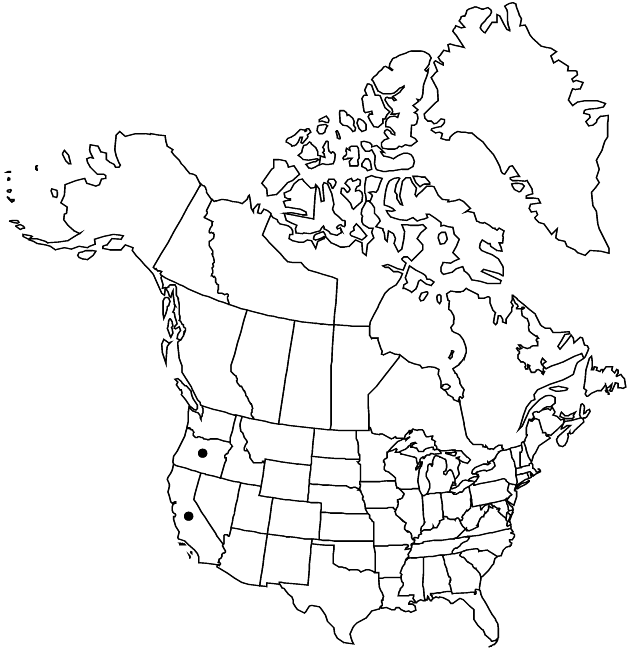Difference between revisions of "Micropus californicus"
Index Seminum (St. Petersburg) 2: 42. 1836.
FNA>Volume Importer |
RevisionBot (talk | contribs) m (Bot: Adding category Revised Since Print) |
||
| (7 intermediate revisions by 3 users not shown) | |||
| Line 8: | Line 8: | ||
}} | }} | ||
|common_names=Slender cottonseed;Q-tips | |common_names=Slender cottonseed;Q-tips | ||
| + | |special_status={{Treatment/ID/Special_status | ||
| + | |code=F | ||
| + | |label=Illustrated | ||
| + | }} | ||
|basionyms= | |basionyms= | ||
|synonyms={{Treatment/ID/Synonym | |synonyms={{Treatment/ID/Synonym | ||
|name=Bombycilaena californica | |name=Bombycilaena californica | ||
|authority=(Fischer & C. A. Meyer) Holub | |authority=(Fischer & C. A. Meyer) Holub | ||
| + | |rank=species | ||
}} | }} | ||
|hierarchy=Asteraceae;Asteraceae tribe Gnaphalieae;Micropus;Micropus californicus | |hierarchy=Asteraceae;Asteraceae tribe Gnaphalieae;Micropus;Micropus californicus | ||
| Line 23: | Line 28: | ||
-->{{Treatment/Body | -->{{Treatment/Body | ||
| − | |distribution= | + | |distribution=Calif.;Oreg.;nw Mexico. |
|discussion=<p>Varieties 2 (2 in the flora).</p><!-- | |discussion=<p>Varieties 2 (2 in the flora).</p><!-- | ||
--><p>Though common and often found on recent disturbances within its range, <i>Micropus californicus</i> does not appear to be particularly invasive or weedy. The mature pistillate paleae, with roughly the profile of a harp or of an inverted lower-case letter “q,” are distinctive. That shape and the accompanying dense, cottony indument of the common variety explain the vernacular names. By contrast, pistillate paleae of <i>M. amphibolus</i> have roughly the profile of a human head wearing a billed cap.</p><!-- | --><p>Though common and often found on recent disturbances within its range, <i>Micropus californicus</i> does not appear to be particularly invasive or weedy. The mature pistillate paleae, with roughly the profile of a harp or of an inverted lower-case letter “q,” are distinctive. That shape and the accompanying dense, cottony indument of the common variety explain the vernacular names. By contrast, pistillate paleae of <i>M. amphibolus</i> have roughly the profile of a human head wearing a billed cap.</p><!-- | ||
| Line 49: | Line 54: | ||
-->{{#Taxon: | -->{{#Taxon: | ||
name=Micropus californicus | name=Micropus californicus | ||
| − | |||
|authority=Fischer & C. A. Meyer | |authority=Fischer & C. A. Meyer | ||
|rank=species | |rank=species | ||
| Line 56: | Line 60: | ||
|basionyms= | |basionyms= | ||
|family=Asteraceae | |family=Asteraceae | ||
| − | |distribution= | + | |distribution=Calif.;Oreg.;nw Mexico. |
|reference=None | |reference=None | ||
|publication title=Index Seminum (St. Petersburg) | |publication title=Index Seminum (St. Petersburg) | ||
|publication year=1836 | |publication year=1836 | ||
| − | |special status= | + | |special status=Illustrated |
| − | |source xml=https:// | + | |source xml=https://bitbucket.org/aafc-mbb/fna-data-curation/src/2e0870ddd59836b60bcf96646a41e87ea5a5943a/coarse_grained_fna_xml/V19-20-21/V19_755.xml |
|tribe=Asteraceae tribe Gnaphalieae | |tribe=Asteraceae tribe Gnaphalieae | ||
|genus=Micropus | |genus=Micropus | ||
| Line 67: | Line 71: | ||
}}<!-- | }}<!-- | ||
| − | -->[[Category:Treatment]][[Category:Micropus]] | + | --> |
| + | |||
| + | [[Category:Treatment]] | ||
| + | [[Category:Micropus]] | ||
| + | [[Category:Revised Since Print]] | ||
Latest revision as of 18:32, 6 November 2020
Plants 1–50 cm. Heads depressed-spheric, 2–4 × 3–6 mm. Receptacles depressed-spheric, mostly 0.3–0.6 mm, heights 0.5–0.8 times diams. Pistillate paleae 4–7(–8) in 1 series, longest 2–4 mm; wings obscure, withering, lateral, ± erect, narrowly oblanceolate, involute; bodies galeate, cartilaginous to bony throughout, sericeous to lanuginose. Staminate paleae 0. Staminate corollas 1–2 mm, lobes usually 5. Cypselae 1.4–2.6 mm, corolla scars ± median; pappi: staminate 0 or of 1, ± smooth bristle 0.9–1.5 mm.
Distribution

Calif., Oreg., nw Mexico.
Discussion
Varieties 2 (2 in the flora).
Though common and often found on recent disturbances within its range, Micropus californicus does not appear to be particularly invasive or weedy. The mature pistillate paleae, with roughly the profile of a harp or of an inverted lower-case letter “q,” are distinctive. That shape and the accompanying dense, cottony indument of the common variety explain the vernacular names. By contrast, pistillate paleae of M. amphibolus have roughly the profile of a human head wearing a billed cap.
Within the more limited range of var. subvestitus, the two varieties are broadly sympatric, usually in separate populations, occasionally in mixed populations that sometimes include intermediate plants.
Selected References
None.
Key
| 1 | Pistillate paleae densely and loosely lanuginose, longest usually 3–4 mm | Micropus californicus var. californicus |
| 1 | Pistillate paleae thinly sericeous-lanuginose, longest usually 2–3 mm | Micropus californicus var. subvestitus |